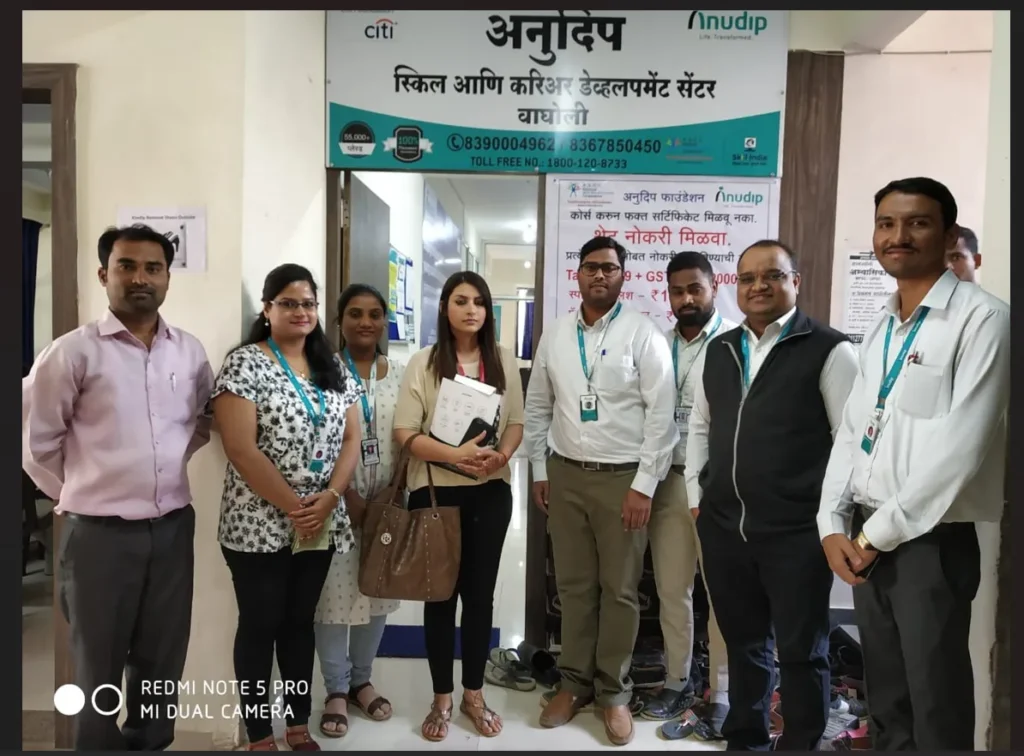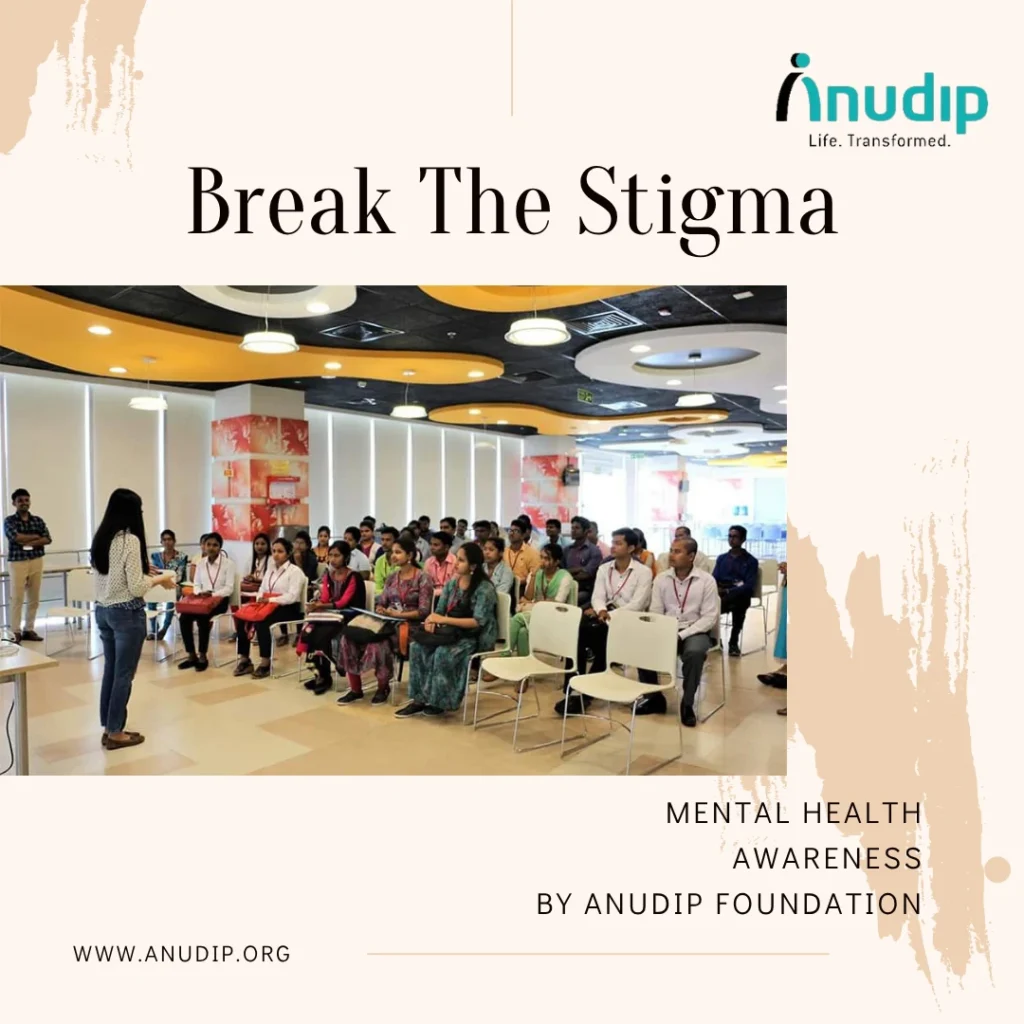Mental health is a serious matter. It is not just about feeling sad. It is about how we think, feel, and behave every day. It is significant for children and youth. Young people are dealing with so much new stress. They will need to be strong not just in their bodies but also in their minds. But many young people are feeling stressed, worried, and anxious. In reality, their problems often go unnoticed or unseen. They may not know who to talk to about these feelings.
The Anudip Foundation believes in a simple theory. A healthy mind is a strong mind. Our work is not different from this theory. We are all about creating a strong future. That includes creating strong minds. We know that real empowerment starts from within. When children and youth feel good about themselves, they can do anything. Our programs help them develop skills. More importantly, our programs help them develop confidence and hope. We are helping them win their inner battles.
Why is mental health awareness important in youth?
Young people in India are under tremendous pressure. They have to succeed in academics, find jobs, and stay in touch with friends on social media, which can all create a lot of stress. So, we should be talking about mental health.
A study completed by the National Crime Records Bureau (NCRB) https://www.ncrb.gov.in/ in 2024 revealed that suicide is the foremost cause of death in youth between the ages of 15-29. This is an unfortunate fact. The causes are typically stress, family issues, and a fear of failure. Moreover, the Ministry of Health and Family Welfare published new data in 2025, indicating that nearly 70% of people suffering from mental health issues are not receiving treatment. They do not get help because of a lack of understanding and social stigma. The reality is, people don’t talk about it.
Experts generally agree that productivity and social media are contributing factors. They contribute towards a “fear of missing out” (FOMO) mentality. Young people only see perfect people’s lives on social media. They eventually view their own lives as less than perfect. This can lead to anxiety and low self-esteem. Thus,
How does being unemployed affect mental health?
There is a strong connection between having a job and having good mental health. When a young person does not have a job, they might feel helpless. They might feel like they have failed. This is true for many young people with an education in India today. They may have an education, but they cannot find a job. They feel anxious and uncertain about their future.
A lack of skills makes this worse.
For example, if a young person knows they do not have the proper skills and qualifications, they may not even try to apply for a job. This can lead to plenty of stress and anxiety. Additionally, these individuals might feel inferior to others. These negative emotions and feelings could eventually lead to more serious mental health issues. The stress will prevent someone from leading a happy life. Job stress and lack of skills cannot solely be about the financial aspect. It is about the person’s overall well-being.

What role does Anudip Foundation’s training play in mental well-being?
Anudip’s training is not simply about teaching. It is about healing. Our training impacts young people’s lives by giving them the tools to build a better life. That impacts their mental well-being in different ways. To illustrate, it reduces stress. It provides a sense of purpose for a young person.
1. Building Confidence and Self-Esteem
Just like exercise builds muscles, learning a new skill is exercise for the brain. When a student learns to code or use a computer, they feel a sense of accomplishment. They have learned something new, and that is the first step in building their confidence. A study by the House of Lords Library in the UK found a concrete link between a person’s self-esteem improving in almost every case when they developed a skill that had practical application. We see this every day in our students. They are standing taller; they are speaking more clearly. Our students are beginning to believe in themselves.
2. Fostering a Safe Community
Our centers are not solely classrooms. They are safe spaces. They are communities. Our students meet others who are dealing with the same issues. They make new friends. They foster each other’s resiliency, and that is so crucial. A safe community helps combat feelings of loneliness. A safe community helps mitigate stress. Young people are particularly vulnerable to feeling alone when they do not feel like they are part of something. Anudip mentors also listen to students. They listen kindly and offer advice. They provide support that does not just relate to schoolwork.
3. Building a Path Toward Independence
Getting a job is a massive accomplishment. It provides a young person with financial independence. That reduces a lot of stress. They do not have to worry about finances as much. They can even help their families. It gives them a reason to get up in the morning and provides a sense of pride. A young person getting to this point is already in a much better place mentally. With their job, they begin to develop their self-sufficiency skills, which means they can begin to stabilize their mental health. A strong focus of Anudip is job placement, which is a direct way to support a young person in achieving this independence. After all, when they can imagine a better future, they feel hopeful.
How does mentorship improve youth mental health?
Mentorship is an essential part of what we do. Our mentors are not just teachers; they are mentors. They help students identify goals. They help them address challenges. When a young person has a mentor, they know there is someone who cares about their success. This is incredibly valuable.
Our programs also employ a peer-to-peer approach. In this case, students are also supporting each other. Students are learning from each other. Students are working in groups. This community approach to learning helps the students build social skills. This also helps students feel connected. Having strong social connections is critical to mental health. Strong social connections can be thought of as a support system. When young people feel supported, it helps them feel stronger, and it helps their resilience to stress.

What can we do to create a stronger and better future for youth?
All of us have a role to play. We need to create a world where youth can talk about their feelings. We need to help them develop the right skillsets. And we need to build more safe spaces for youth.
Donors and partners can help us significantly. Your support is an investment in the next generation. It is an investment in their happiness and well-being. By donating to the Anudip Foundation, you can support us in opening more centres. You can support us in providing more scholarships. You can support us in getting to more youth, who certainly need our help. Your donation will not provide just a job; it will provide a more confident and capable individual.
To see the actual impact of our work and more information about our programs, you can go to our site: https://anudip.org.
Conclusion
The need for mental health awareness for youth is critically important. It’s the basis of a happy, successful life. Young people’s minds need as much care as their bodies do.
The Anudip Foundation is committed to creating this strong positive base. We are not only training people for jobs. We are empowering them. We are building in them confidence, skills, and community to live a full and happy life. And we are building a future where every young person is not only in a career, but also mentally strong. Together we can build a generation of youth and young adults that will lead India forward, with skills and spirit.

